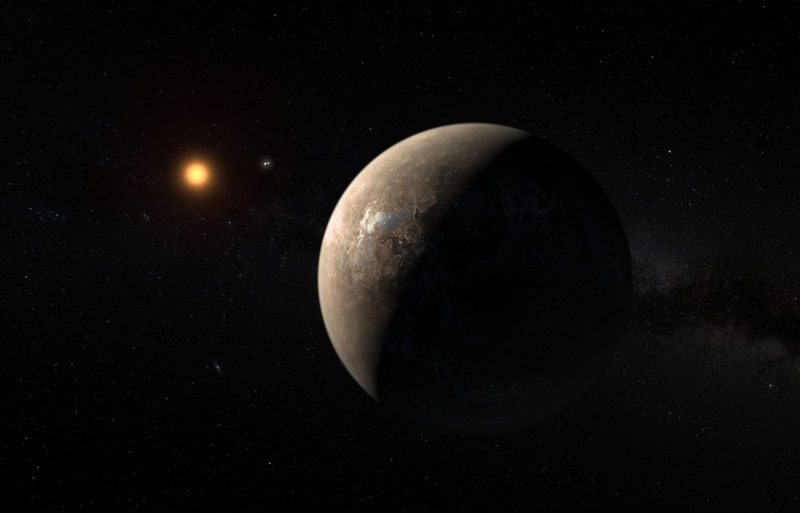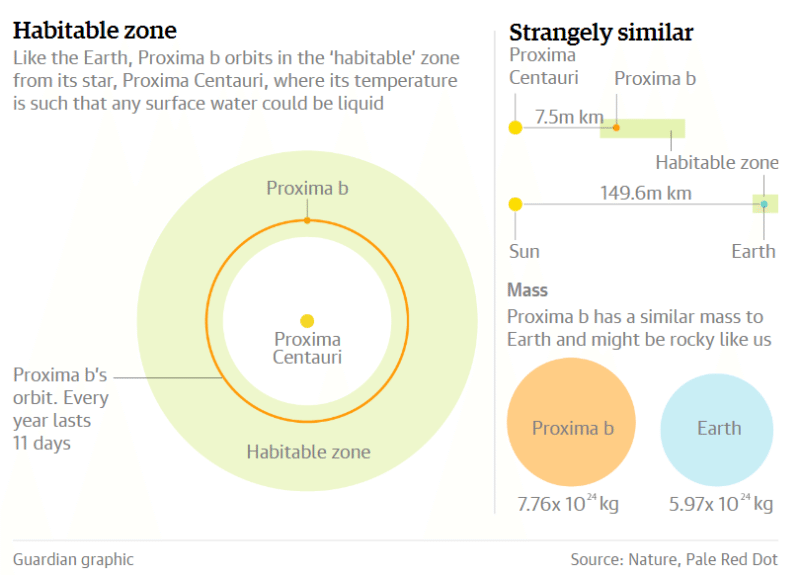Earth-Like Planet Found Orbiting Nearest Star
Ashley Allen / 8 years ago

Astrophysicists have discovered an Earth-like planet, capable of supporting life as we know it, orbiting the nearest star to our Solar system. The planet, dubbed “Proxima b”, is approximately 1.3-times the size of Earth and is positioned within the fabled circumstellar habitable zone (CHZ) of Proxima Centauri, a red dwarf star 4.243 light years away.
“There is a reasonable expectation that this planet might be able to host life, yes,” Guillem Anglada-Escudé, co-author of the research from Queen Mary, University of London said (via The Guardian).
Being in the habitable zone, Proxima b could support liquid water – given the appropriate atmospheric pressure – which is vital to supporting life. While a number of such exoplanets have been discovered, Proxima b is by far the closest. However, using current technology, it would still take an unmanned craft around 70,000 years to travel to it.

“Finding out that the nearest star to the sun hosts not just a planet, not just an Earth-sized planet, but one which is in the right location that it could support life – and there are a lot of caveats there – really underscores that not only are planets very common in our galaxy, but potentially habitable planets are common,” Eamonn Kerins, an astrophysicist at Jodrell Bank Centre for Astrophysics, added.
Proxima b was discovered after Anglada-Escudé and his team scrutinised the light emitted from Proxima Centauri, following previous hints that such a planet could exist. Examining the light data, the astrophysicists determined the existence of Proxima b through the duration of colour shifts in the star’s light, as detailed in a recent Nature article [PDF].
“What we basically do is measure how the star is moving,” Anglada-Escudé said. “If you have a planet around a star, the planet is also pulling the star a bit so you see the star is moving. It is going towards you and away from you, periodically.”
While speculation that Proxima b may be habitable is premature, according to Anglada-Escudé, the researchers are hopeful that further investigations into the planet’s potential to support life will yield promising results.
Image courtesy of Space.com.



















